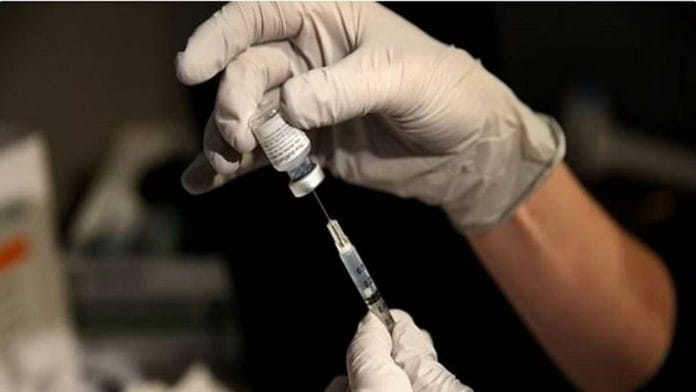New Delhi: Several organisations working for greater public access to medicines and patients’ rights have written to the Union government requesting it to change the 2016 Guidelines on Similar Biologics (biosimilars) to facilitate quicker access to quality biosimilars at an affordable rate.
Biosimilars are generic equivalents of biologic drugs — a new class of medicines that include protein and antibiotics — and are more complex than small-molecule drugs.
Biologics include therapeutics based on large molecules — monoclonal antibodies, gene therapies, hormones, enzymes, oligonucleotides and others. These are called biologics because they are made from living cells or organisms.
Monoclonal antibodies are synthetic proteins that work like antibodies. while gene therapies involve treatment of missing or abnormal genes with normal genes.
These therapies are being developed to treat conditions including infections, skin diseases and cancers, with the price of some biological therapies — such as monoclonal antibodies — ranging between Rs 2 lakh and Rs 4 lakh per treatment cycle.
Unlike small molecule drugs, generic versions for which are launched far more easily —based on bioequivalence data to show that they are chemically equivalent to the active pharmaceutical ingredient in an originator drug — once the patent on an originator drug expires, the current guidelines on biosimilars require mandatory animal studies and comparative safety and efficacy studies or clinical trials to prove their clinical equivalence to the originator biologic drug.
“These requirements are a major barrier for the approval of biosimilars since they are both resource-intensive and time-consuming,” civil society organisations have said in the letter signed by All India Drug Action Network, All India Peoples Science Network, Jan Swasthya Abhiyan and Working Group on Access to Medicines and Treatments, among others.
ThePrint has a copy of the letter.
“The presence of these barriers limits the number of players entering the market, thus decreasing competition,” the letter dated 5 July and addressed to Union health secretary Rajesh Bhushan and department of biotechnology secretary Rajesh S. Gokhale further said.
It added: “Consequently, the steep price decline that is evident in the case of generic drugs is not visible in the biosimilar medicines”.
ThePrint reached Bhushan and Gokhale over phone for comments but did not get a response till the time of publication of this report. The article will be updated once a response is received.
According to industry estimates, only 127 biosimilar drugs have reached the Indian market thus far.
An independent pharmacologist who is on a Central Drugs Standard Control Organisation (CDSCO) panel told ThePrint on condition of anonymity that several countries are now revising their biosimilar norms.
“It is fine as long as adequate care is taken to ensure that data from biosimilars are evaluated thoroughly for safety, along with efficacy,” he said.
Also read: New US-approved gene therapy for Haemophilia B world’s most expensive drug — $3.5 mn per dose
‘International norms changing’
Chaitali Rao, a legal researcher with the Third World Network, a non-profit organisation working on issues relating to global development, developing countries and North-South affairs and a signatory to the letter, pointed out that over the past two years, several regulatory bodies across the globe have reduced barriers to bring down the price of biosimilars in the market.
In 2021, the UK Medicines and Healthcare Products Regulatory Agency, for instance, waived off animal studies for the approval of biosimilars, Rao told ThePrint.
Last year, the World Health Organisation also replaced its Similar Biological Product guidelines with revised biosimilar guidelines which laid emphasis on a revised approach to clinical comparability requirements and obviating the need for animal studies, apart from a simplified approach to the sourcing of comparator products, Rao added.
The incorporation of the new revised WHO Biosimilar Guidelines in the Indian regulatory framework may present tremendous opportunities for manufacturing to introduce affordable, safe and efficacious biosimilars, the letter said.
It added that in December last year, US President Joe Biden had signed a legislation, which removed the animal studies requirements for biosimilar marketing approval in the US.
“We understand that technical advancement in scientific technology and the remarkable improvements in increased knowledge from the elucidation of structure–function relationships, physiochemical and analytical characterization and the experience gained by regulators and developers, pave the way towards waving clinical evaluation, with a greater emphasis on assessment of quality and functional activities in vitro (nonclinical),” the signatories have said.
The waiving of comparative efficacy studies and in-vivo animal toxicity studies, will drive down the cost of production of biosimilars, claimed the letter. It added that significant savings from streamlined biosimilar development can be achieved while maintaining the safety and efficacy of the biosimilar product.
This will facilitate affordability and access of biotherapeutic products for patients in need of such treatments, it further said.
(Edited by Poulomi Banerjee)






